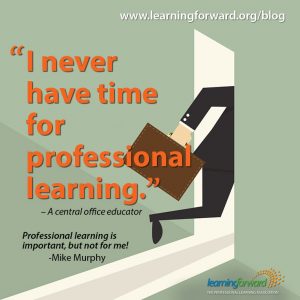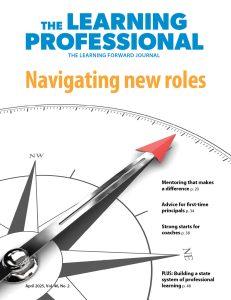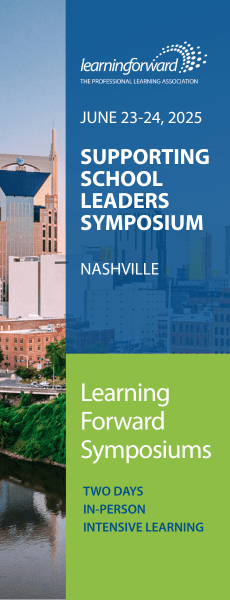Leadership
What can educators learn from Star Wars? You do not have to inhabit a galaxy far, far away to learn lessons about effective professional learning. In fact, the most effective professional learning occurs within your own educational sphere, so here are six lessons to transform learning in your own universe.
When we think about what hooks us to popular reality television shows, it’s often the characters that pull us in each week. Is it the odd or eccentric idiosyncrasies that leave us baffled and intrigued about what they might do next? Do we find ourselves trying to predict their behaviors and how others around them might respond? Trying to decipher the needs and behaviors of others is a critical skill that helps make leaders effective.
People who know Deborah Jackson, Learning Forward board of trustees president, know how passionate she is about education. In this post, she reflects on how her path has not always been predictable and shares a few of the more surprising moments in her life as a learning leader.
Research has confirmed many times that leadership is second only to teaching in influencing student achievement. What do system and school leaders do that teachers value most and identify as most helpful in their efforts to ensure high-quality literacy and standards-based instruction for all students?
I was about to facilitate professional learning with school leaders in a large, urban school district a few months ago. The topics had been planned, the content and process had been reviewed, and I was ready to go. Right before my time started, I had the opportunity to meet the central office educator who was in the room and, according to the organizational chart, in charge of school improvement, instruction, and student performance.
How do you use the power of words to spark positive change? How are words being used in your setting to create a culture of caring? Words matter. They can offer perspective, insight, and understanding. Words can bring encouragement and hope.






